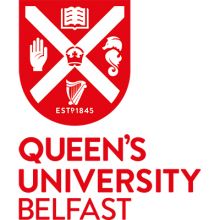Many vice-chancellors have claimed that a hard Brexit would be disastrous for their universities, but there is little doubt which institution would be hardest hit by this outcome.
With its Magee campus, in Derry/Londonderry, situated about two miles from the Republic of Ireland, Ulster University is the only UK higher education institution to share a land border with a European Union nation.
While few people expect the reintroduction of checkpoints at the Derry-Donegal crossing, the prospect of a “hard border” has not yet been ruled out. That would likely cause daily chaos for about 60 Magee staff who commute from County Donegal. Students would also be affected, with about 1,200 from the Republic of Ireland currently enrolled at Magee, while others are studying at Ulster’s campuses in Belfast, Coleraine and Jordanstown.
“We now have a fairly seamless mobility of students and staff, so a hard border would change that overnight,” Paddy Nixon, vice-chancellor and president of Ulster University, told Times Higher Education.
With annual student fees in Northern Ireland and the Republic of Ireland not too dissimilar – Ulster is charging about £4,000 this year, while yearly “contribution charges” over the border are equivalent to £2,400 – very few students from the Republic have been put off from studying at Ulster for cost reasons, said Professor Nixon.
However, if a hard Brexit took effect, “they could be considered as foreign students”, he explained. In the worst-case scenario, they would then be classified as any other international student, making them liable to higher fees of about £13,000 – a trebling of costs that would surely see most students from the Republic look elsewhere, particularly if they also lost access to student loan funding.
“My sense is that pragmatism will prevail and this will not happen,” he said, pointing to the fact that the Good Friday Agreement guarantees the same rights to those living on both sides of the border.
“If we end up treating [students from the Republic] differently, we are in contravention of the Good Friday Agreement,” he said.
Avoiding a hard border between Northern Ireland and the Republic has been identified by the EU, a co-signatory to the 1998 Belfast accord, as one of its three priorities in the first phase of Brexit negotiations, Jean-Claude Juncker, European Commission president, announced last week.
Leaving the EU means putting at risk special funding from the union to encourage cross-border initiatives linked to the peace process, said Professor Nixon.
“We won €23 million (£20 million) in grants in January under an EU programme designed to support the economy on an all-Ireland basis – that is a significant amount of money,” he explained.
Nonetheless, Professor Nixon believed Brexit also presented opportunities for Northern Irish universities, particularly if a deal to create an all-Ireland post-study work visa could be struck.
Only about 5 per cent of its student body are now international students but this proportion could increase sharply if Northern Ireland were to offer a post-study scheme similar to that scrapped in the UK in 2012, he said. International student applications to the Republic, which has a post-study work visa scheme, spiked by 17 per cent after the Brexit vote, he noted.
“All the evidence suggests that this would be a compelling offer to students,” he said, adding that being able to advertise “a degree in an English-speaking country, low cost of living, good quality of life and the chance to [stay and] gain a good job” would allow Northern Irish universities to boost foreign intake.
With many global technology companies located in Dublin, there is a “massive shortage of graduates” for certain jobs, while Belfast also required highly skilled workers to work in industry, he said.
“It’s actually easier to get a job with Facebook in Dublin than it is in London,” he said, adding that Belfast was a major UK hub for cybersecurity firms.
The all-Ireland visa would use the Irish Sea as its border, he explained, stopping international graduates from simply moving to work in London. This special status may be unpopular with some unionist voices worried about any weakening of Northern Ireland’s links to the UK mainland and closer ties to the Republic, but his university would struggle to attract more international students post-Brexit without this dispensation, Professor Nixon said.
“If we had to compete with a similar offer down the road [without post-study work visas], we would find it very difficult,” he added.
POSTSCRIPT:
Print headline: Facing up to Brexit’s hard realities and hard border threat
Register to continue
Why register?
- Registration is free and only takes a moment
- Once registered, you can read 3 articles a month
- Sign up for our newsletter
Subscribe
Or subscribe for unlimited access to:
- Unlimited access to news, views, insights & reviews
- Digital editions
- Digital access to THE’s university and college rankings analysis
Already registered or a current subscriber?




